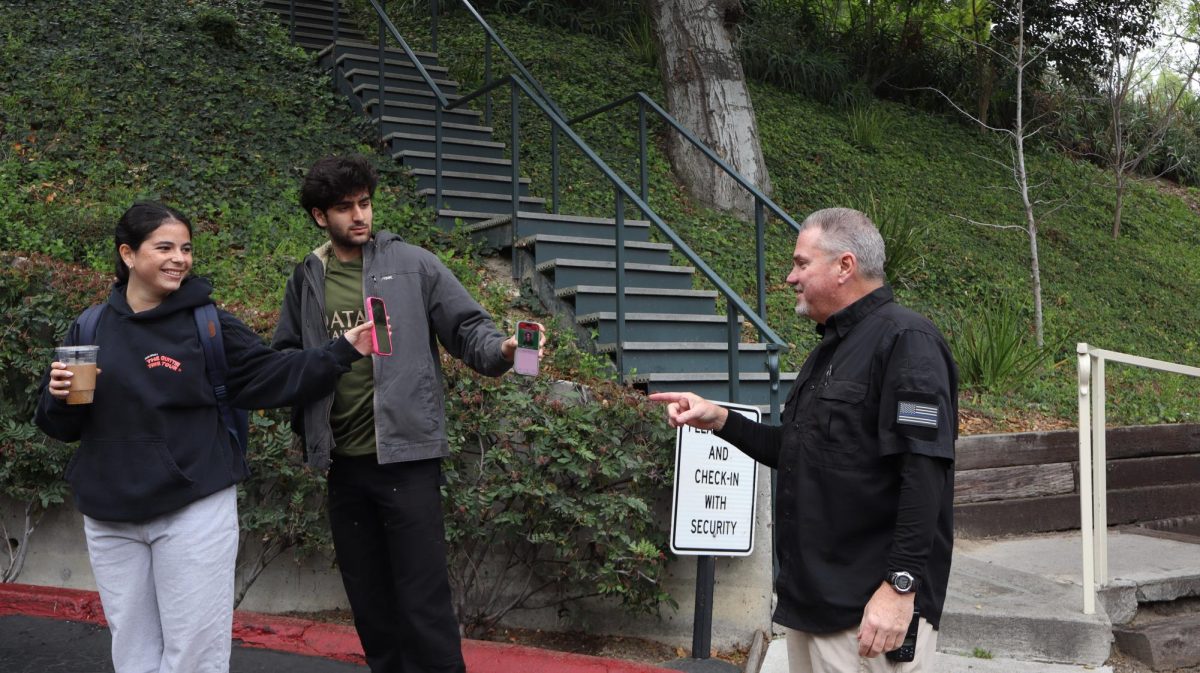By Esther Zuckerman
Max Rifkind-Barron â07 said he caught a glimpse of Iranian President Mahmoud Ahmadinejad in a car driving through Rifkind-Barronâs college campus Sept. 24. Ahmadinejad was riding along with decoy cars and police vehicles so Rifkind-Barron said he canât be sure it was the president.
Rifkind-Barron, a freshman at Columbia University, and other Harvard-Westlake alumni were in the hubbub of Ahmadinejadâs visit to Columbia while in New York for the United Nations General Assembly.
Rifkind-Barron watched the actual speech as a live simulcast in an academic building and had his friends save seats while he went to see if he could see Ahmadinejad himself. Unlike some members of Columbiaâs community, he was happy that Columbiaâs president, Lee C. Bollinger, invited Ahmadinejad.
âWe have to have room for discourse,â Rifkind-Barron said.
Kurt Kanazawa â07 was one of the freshmen that was in the auditorium where Ahmadinejad spoke. The event was also broadcast in the academic building and on a lawn. On the lawn, student groups protested Ahmadinejadâs presence and stance on human rights, homosexuals, nuclear weapons and other issues in his country. Greer Feick â07 and a group of friends protested human rights violations in Iran.
âIt brought the campus together more,â Feick said. âPeople were unified in their dislike, which allowed for more discussions.â
The campus was practically covered in posters put up by student groups, Jeff Iloulian â06 said.
âThe campus has never been like that before,â Iloulian said. âIt was completely plastered. There were people running around ripping down the flyers and other people putting them up for the entire 24 hours before.â
Iloulian saw two men tearing down posters at 2 or 3 a.m. the day of the speech. He said he later learned they were Palestinian refugees.
âThey were getting into these huge arguments with a bunch of other people standing around,â Iloulian said.
Iloulian, a Persian Jew, said he was fine with Ahmadinejadâs visit but that some of his Persian friends worried that the presidentâs remarks might incite prejudice.
Bollinger added more controversy to the situation when he said in his opening remarks that Ahmadinejad showed âall the signs of a petty cruel dictator.â
Unlike Rifkind-Barron, Feick and Iloulian, Lucas Shaw â07 had a âserious problemâ with Bollingerâs speech.
âBollinger was influenced by criticism,â Shaw said.
Shaw said he was also angry that Bollinger went 10 minutes into Ahmadinejadâs time.
Feick said it was important for Bollinger to make a statement because some alumni were threatening to withdraw support for the school, feeling like the visit gave Ahmadinejad a platform.
Both Feick and Shaw said they thought that Ahmadinejadâs speech was rambling at the beginning, but it was interesting to hear his points. Rifkind-Barron said he found Ahmadinejad âwittyâ at times, citing as an example his answer as to whether he had called for the destruction of the state of Israel.
âHe responded, âWell, then, fine. I need to ask a yes or no question. Can the Middle East peace crisis be solved?â Rifkind-Barron recounted.
Rifkind-Barron also said he wasnât the only one who laughed when Ahmadinejad said there were no homosexuals in Iran.
âThat was hilarious.â






























